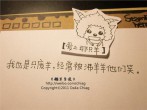
如何管理情绪的英语作文【一】
语言学习策略指“学习者为了使语言学习取得更好的效果而采取的各种策略,它既包括学习者为了更好地完成某个学习活动或学习任务而采取的微观策略,也包括学习者对自己的学习目标、学习过程、学习结果进行计划、调控、评估等而采取的宏观策略。一个成功的语言学习者常能根据任务的需要综合使用各种策略。使用有效的外语学习策略,不仅可以改进外语学习方式,促进语言技能的发展,还可以使学习者在语言学习中扮演更积极的角色,提高教学质量。
可见,学习者的学习策略知识对语言学习有积极的反拨效应,可以提高学生的语言水平英语教师如果能引导学生学会调整和运用英语学习策略,使他们用良好的学习策略来控制自己的学习方法和过程,就能大大提高英语学习的效率,更能帮助他们学会学习,习得终身学习的能力。但是,英语学习策略属于隐性知识,如何才能使学生了解、掌握和运用它们呢?知识管理为这一问题的解决提供了契机。
如何管理情绪的英语作文【二】
organizations
who are managers
A manager is someone who coordinates and oversees the work of other people so that organizational goals can be accomplished.
How do we define who managers are
we have first-line managers, the lowest level of management ,manage the work of nonmanagerial employees who typically are involved with producing the organization’s products or servicing the organization’s customers. First-line managers often have the title of supervisor, but they may also called shift managers, district managers, department managers, office managers, or even foreperson. middle managers include all levels of management between the first level and the top level of the organization. These managers manage the work of first-line managers and may have titles such as regional manager, project leader, plant manager, or division manager. At or near the upper levels of the organizational structure are the top managers, who are responsible for making organization-wide decisions and establishing the plans and goals that affect the entire organization. These individuals typically have titles such as executive vice president, president, managing director, chief operating officer, chief executive officer, or chairperson.
what is management
management involves coordinating and overseeing the work activities of others so that their activities are completed efficiently and effectively.
Efficiency refers to getting the most output from the least amount of inputs.
Effectiveness is often described as doing things right, that is, not wasting resources.
what do managers do
management researchers have, after many years of study, developed three specific categorization schemes to describe what managers do: functions, roles, and skills. management functions
Planning: managers define goals, establish strategies for achieving those goals, and develop plans to integrate and coordinate activities.
organizing: managers are responsible for arranging and structuring work to accomplish the organization’s goals.
Leading: managers motivate subordinate, help resolve work group conflicts, influence individuals or teams as they work, select the most effective communication channel, or deal in any way with employee behavior issues.
controlling: managers have to monitor, compare and correct everything that is deviating. management roles
The term management roles refers to specific categories of managerial behavior.
Interpersonal roles are roles that involve people and other duties that are ceremonial symbolic in nature. The three interpersonal roles include figurehead, leader, and liaison.
Informational roles involve collecting, receiving, and disseminating information. The three informational roles are monitor, disseminator, and spokesperson.
Decisional roles entail making decisions or choices. The four decisional roles are entrepreneur, disturbance handler, resource allocator, and negotiator.
management skills
Technical skills are the job-specific knowledge and techniques needed to proficiently perform specific tasks. These skills tend to be more important for lower-level managers because they typically are managing employees who are suing tools and techniques to produce the organization’s products or service the organization’s customers.
Human skills involve the ability to work well with other people both individually and in a group. Because managers deal directly with people, these skills are essential and equally important at all levels of management.
conceptual skills are the skills managers use to think and to conceptualize about abstract and complex situations. Using these skills, managers must see the organization as a whole, understand the relationships among various subunits, and visualize how the organization fits into its broader environment.
How the manager’s job is changing
what is an organization
An organization is a deliberate arrangement of people to accomplish some specific purpose.
Becoming a manager
1. Keep up with current business news.
2. Read books about good and bad examples of managing.
3. Remember that one of the things good managers do is discover what is unique about each
person and capitalize on it.
4. Keep in mind the simple advice of the late Peter Drucker, who has been called the most
influential management thinker of the twentieth century: management is about people.
5. work on your soft skills—work ethic, communications, information gathering, and people
skills. These are what employers cite as the most important factors for getting jobs.
6. observe managers and how they handle people and situations.
7. Talk actual managers about their experiences—good and bad.
8. Get experience in managing by taking on leadership roles in student organizations.
9. Start thinking about whether you’d enjoy being a manager.
如何管理情绪的英语作文【三】
你好啊情绪大王,首先请原谅周周老师在课下偷偷给你取的新代号,但是我觉得这个称号真的是太适合你不过了。你有种特别吸引人的气场,在刚开学的时候就给我留下了极深的印象。
“你为什么站军姿的时候要反复碰身边的小朋友呢?”,你没有直面我的问题反而扭过头朝向委屈的豪豪说,“我只是想让你自己学会解决问题,你怎么就只会报告老师呢?”,可是情绪大王啊,你遇到事情的时候又是怎么解决的呢?
当执勤的小小安全员提醒你在走廊不能奔跑,并且要求你立正站好时你撒腿就跑,和四年级的哥哥姐姐们“据理力争”,然而你并没办法理直气壮,所以你就使出了自己的手锏,变身情绪大王,进化过程——先微微含胸驼背,继而龇牙咧嘴,然后目光恨恨,接着双手紧握在身体两侧,随着一声长长的吼叫,便开始张牙舞爪,使得身边周围近一米的范围大家都不能靠近,至此,“情绪大王”究极进化完毕。
可是情绪大王啊,这样的解决方式你认为合适吗?每次你变身之后,周周老师都需要顶着你气场的压力,来和你一起慢慢从情绪大王回到可爱的样子。首先,我们都知道,哭不能解决任何问题,这只是一种宣泄的方式,包括挥舞拳头,可是这种暴戾的情绪不利于你的健康成长啊。它只会让你痛苦,让你失去控制,让其他人远离你,不敢和你亲近,所以亲爱的`情绪大王啊,我们需要控制自己体内的洪荒之力,尤其是当别人在帮助我们改正身上的坏习惯时,我们就要虚心接受啊,这样才能成为一个更好的自己啊。
一个学期过去了,你进化的频率和次数都在降低,到了这个新的学期,目前为止一次进化都没有诶,恭喜你啊情绪大王,你马上就要战胜自己体内的小恶魔了。除了昨天的英语课上,你因为别人笑话你,所以将橡皮在短时间内瞄准并且掷出,一个完美的抛物线直接将一个小朋友弄哭了。笑话你的小朋友当然也受到了批评,毕竟我们都知道应该学会尊重他人,不能嘲笑 或者落井下石。但是情绪大王啊,我们遇到事情要先反思自己有没有做好啊,而且你的解决方式也不完美,我们都知道遇到问题不能用拳头了,而是嘴巴,君子动口不动手嘛,不然你每次犯错我都暴揍你一顿,你肯定也不乐意吧,所以将心比心,我们换个角度来替别人思考一下,就可以找到更合适的方法啦!我们可以在课下用讲道理的方法或者通过寻求周周老师的帮助来解决嘛,不要觉得找周周老师会显得自己很没有面子,我可是很乐于主持公正的!不过好在你这次只是处于第一阶段“据理力争”——“谁让他笑我了!”,并没有完成究极进化,而且事后很快认识到了自己错误,我真是替你感到开心!
刚刚课间去班里照常“视察”,你拉着我让我给你讲故事,看着因为刚上完体育课而满头大汗的你扬着一张灿烂的笑脸,我也能感到自己的嘴角也在上翘,“我去喊阅览室的小朋友回来一块听吧!”,我摸了摸你微微湿润的头发,“不用,我今天只讲给你一个人听。”,从书架上拿起你最爱的《三国演义》,蹲到你座位旁,“今天给你讲桃园三结义吧!东汉末年......”“哎呀刘备原来卖草席啊,我还以为是关羽,看来原来看的看来都忘了啊......”

















